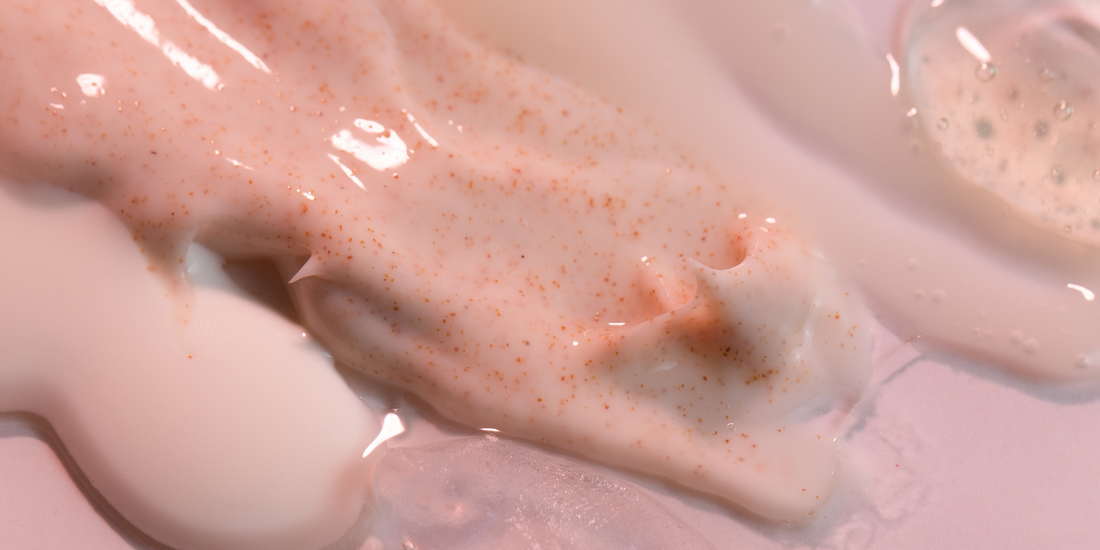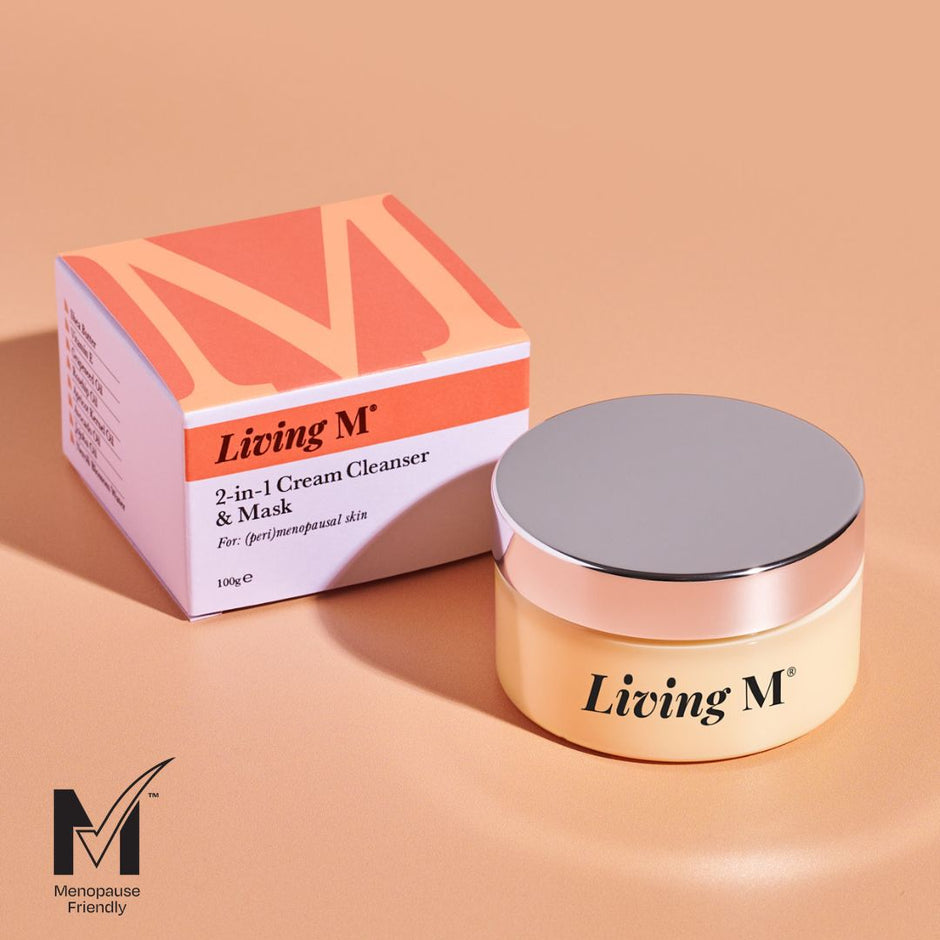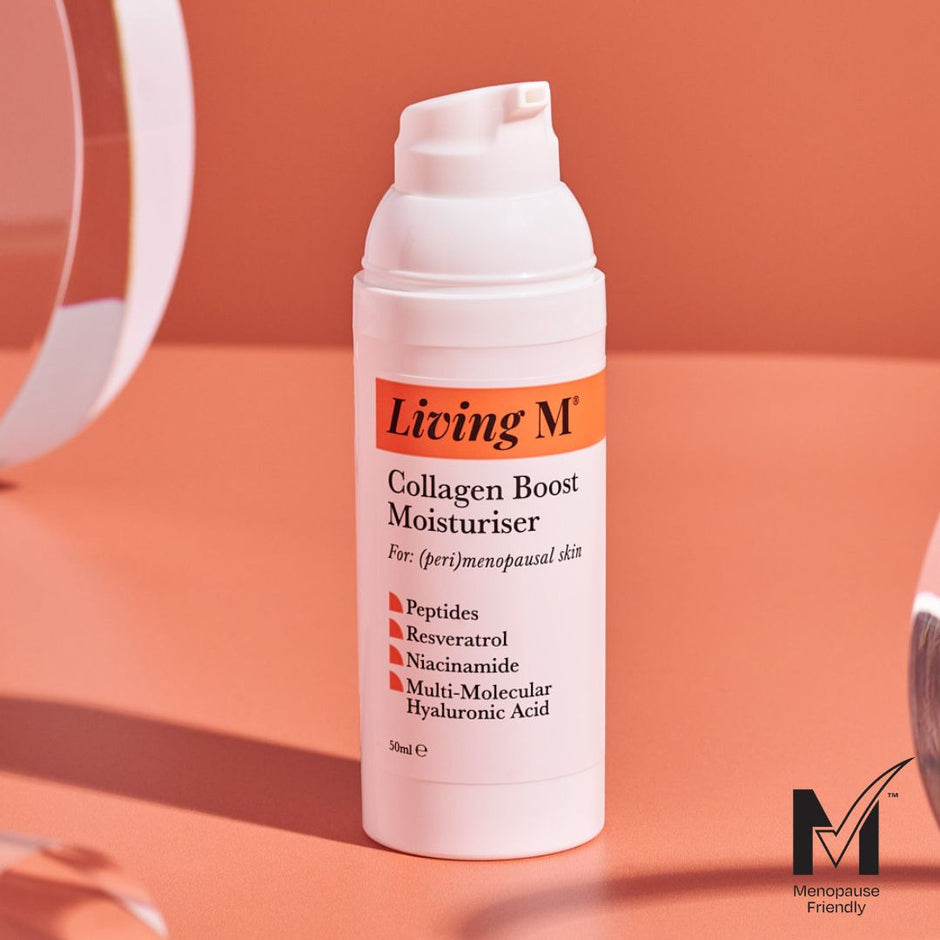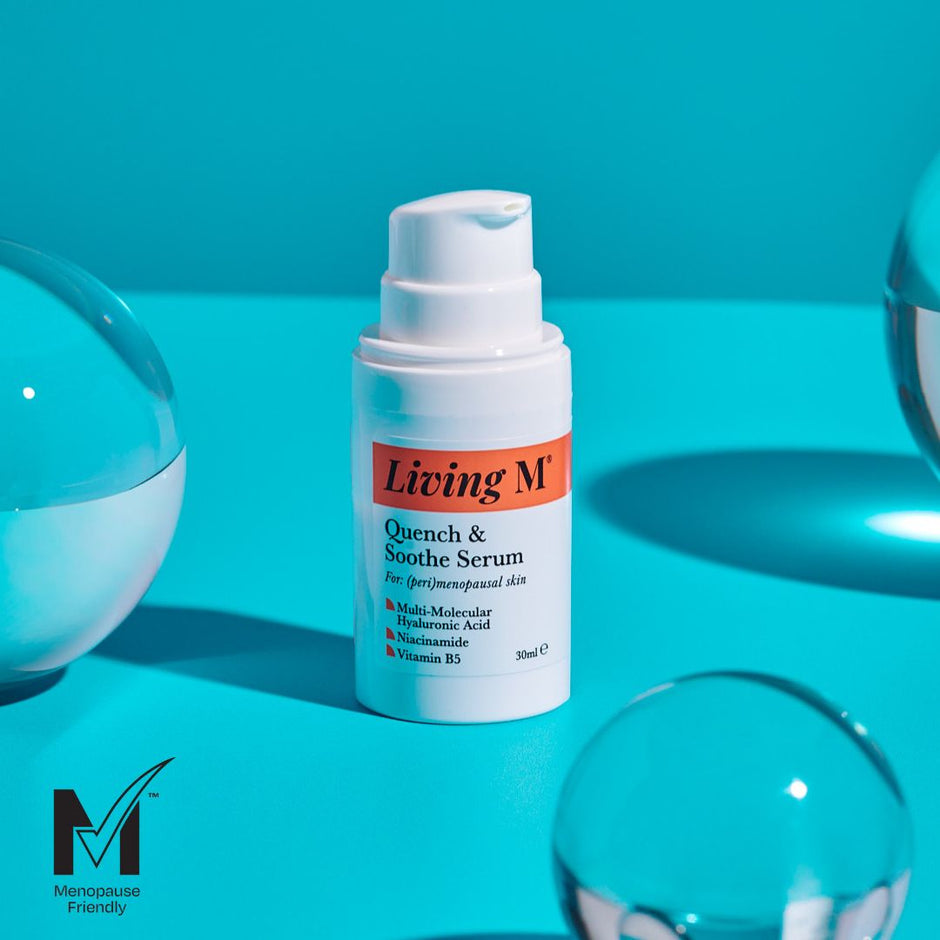The effect on our skin can be dramatic – dryness, dullness, loss of moisture, tone and radiance are all skin symptoms of reduced collagen levels in skin. Knowing which products and ingredients are truly going to help and what is just hype is key to glowing, healthy, stronger skin in menopause.
One of the best-known topical ingredients that can positively affect collagen levels in our skin is retinol. It’s the most proven skincare ingredient there is and the best ingredient to stimulate collagen and effectively reverse signs of collagen loss. If you haven’t already, you need to be incorporating a well-formulated retinol product in your menopausal skincare regime. It’s the gold standard for ageing well and is widely renowned for its transformative effect on skin.
What is Collagen?
Collagen is the most abundant protein in the body found in bones, muscles, skin, and tendons. Think of it like the glue or the scaffolding that holds skin cells together and makes them strong. It’s the structural protein responsible for skin’s elasticity and firmness, so when collagen levels start to decline rapidly in menopause, the impact on our skin is significant. Skin becomes thinner and drier and loses its radiance and ability to hold onto water. The skin barrier also becomes weaker which can make it more prone to irritation, sensitivity and inflammation. You will probably find that products that you have been using for years might not be working anymore for your changing skin needs. Using a well formulated retinol can really help boost collagen production can go a long way to reversing these unwanted skin symptoms caused by menopause.
What is Retinol?
Retinol is an umbrella term for compounds derived from vitamin A. These are officially called retinoids, and there are quite a few different varieties out there. Retinol works in both the outer layer (epidermis) and inner level (dermis) of the skin. It increases the thickness of both layers by increasing cell turnover and stimulating collagen production. Collagen levels decline rapidly as we go through menopause. If you aren’t already using retinol, you need to start now as retinol will help stimulate the skin to boost collagen production. The result: smooth, glowing and healthy skin.
How to choose the right retinol product to boost skin collagen levels
With so many retinol products available the choice is vast – serums, creams, different strengths – it can be hard to know where to start. It’s important to remember that not all of these products have been designed with menopausal skin changes in mind.
It’s well known that retinol side effects include dryness, redness, flaking and peeling during the early stages of use. Because menopausal skin can be even more prone to sensitivity. irritation and dryness, choosing the right formulation is key. But don't be put off. You can get all of the transformative benefits of retinol without the irritating side effects. It’s really important to pair retinol with nourishing ingredients that support your skin barrier and avoid drying out your skin even more.
Super A Retinol Sleep Cream has been formulated especially for menopausal skin to enjoy all the benefits of retinol whilst minimising the risk of skin irritation. We have chosen to use an encapsulated retinol which is released gradually as you sleep. Time release technology reduces the risk of irritation often experienced with retinol use. Nourishing ceramides and multi-molecular hyaluronic acid work to strengthen skin’s natural barrier and deliver deep replenishing hydration to keep your skin looking dewy and radiant while the retinol works it’s magic.
Our cream formulation with nourishing added ingredients also means you don’t need to buffer your retinol product (ie mix it with another moisturiser) because we’ve already done it for you.
If you are just starting out with retinol, start off using the product just 1-2 times a week until your skin gets used to it. Then you can gradually start to increase usage if your skin isn’t showing signs of irritation until you are using every other night. Apply retinol only at night to clean dry skin and always remember to wear SPF. Use factor 50 and use it every day. If you aren’t using a retinol already now is the time to introduce one to boost your skin’s collagen levels for radiant, healthy looking skin.




